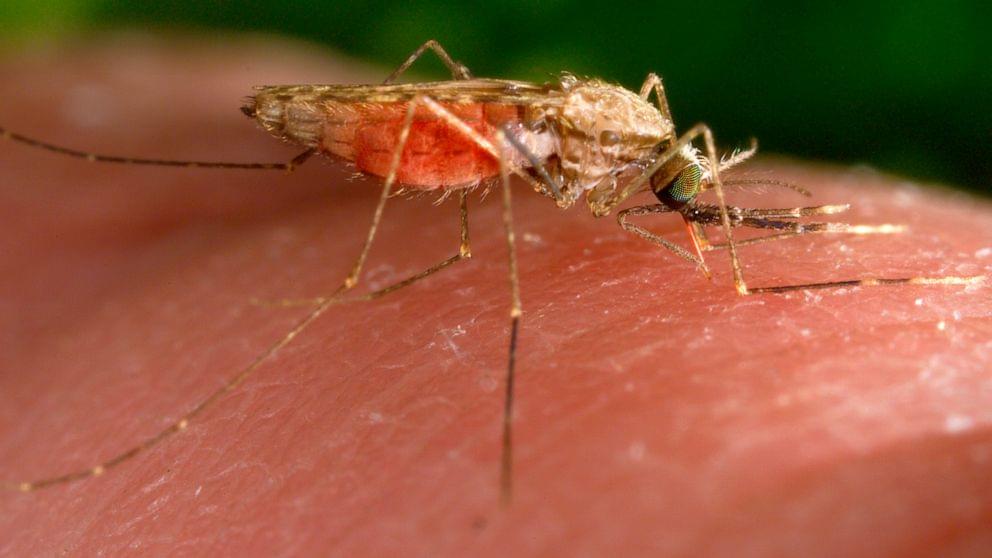Fight fibromyalgia fatigue, pain, and stress with these tips from WebMD. See how to get the rest you need, talk with your family, get energy from exercise, and more.



More cases of locally acquired malaria have been detected in the United States, bringing the total up to seven across the country.
In a recent report, Florida health officials said they detected two more cases of the mosquito-borne illness in Sarasota County.
It comes just two weeks after four people in Sarasota County and one person in Cameron County, Texas, were found to have malaria.

Gas accidents such as toxic gas leakage in factories, carbon monoxide leakage of boilers, or toxic gas suffocation during manhole cleaning continue to claim lives and cause injuries. Developing a sensor that can quickly detect toxic gases or biochemicals is still an important issue in public health, environmental monitoring, and military sectors. Recently, a research team at POSTECH has developed an inexpensive, ultra-compact wearable hologram sensor that immediately notifies the user of volatile gas detection.
[Professor Junsuk Rho’s research team at POSTECH develops wearable gas sensors that display instantaneous visual holographic alarm.].

Artificial intelligence algorithms, such as the sophisticated natural language processor ChatGPT, are raising hopes, eyebrows and alarm bells in multiple industries. A deluge of news articles and opinion pieces, reflecting both concerns about and promises of the rapidly advancing field, often note AI’s potential to spread misinformation and replace human workers on a massive scale. According to Jonathan Chen, MD, PhD, assistant professor of medicine, the speculation about large-scale disruptions has a kernel of truth to it, but it misses another element when it comes to health care: AI will bring benefits to both patients and providers.
Chen discussed the challenges with and potential for AI in health care in a commentary published in JAMA on April 28. In this Q&A, he expands on how he sees AI integrating into health care.
The algorithms we’re seeing emerge have really popped open Pandora’s box and, ready or not, AI will substantially change the way physicians work and the way patients interact with clinical medicine. For example, we can tell our patients that they should not be using these tools for medical advice or self-diagnosis, but we know that thousands, if not millions, of people are already doing it — typing in symptoms and asking the models what might be ailing them.

BERLIN — A United Nations technology agency assembled a group of robots that physically resembled humans at a news conference Friday, inviting reporters to ask them questions in an event meant to spark discussion about the future of artificial intelligence.
The nine robots were seated and posed upright along with some of the people who helped make them at a podium in a Geneva conference center for what the U.N.’s International Telecommunication Union billed as the world’s first news conference featuring humanoid social robots.
Among them: Sophia, the first robot innovation ambassador for the U.N. Development Program, or UNDP; Grace, described as a health care robot; and Desdemona, a rock star robot. Two, Geminoid and Nadine, resembled their makers.

Dr. Ralph W. Moss and son Ben discuss the science behind the health benefits of chocolate and how this delightful indulgence, often considered a guilty pleasure, can play a vital role in our overall well being.
Program Notes:
For more information on cancer-fighting foods and supplements, please visit our website: https://www.themossreport.com.
5 Defenders Mushroom Blend.
5 Defenders Organic Mushroom Blend Capsules
“A comprehensive self-help plan for cancer includes medicinal mushrooms. They are indispensable”. – Ralph W. Moss, PhD
Mushroom Hot Chocolate with 5 Defenders.
Mushroom Hot Chocolate Mix
5 Defenders Chocolate (seasonal item — October-April)

Almost half of the tap water in the US is contaminated with chemicals known as “forever chemicals,” according to a new study from the US Geological Survey.
The number of people drinking contaminated water may be even higher than what the study found, however, because the researchers weren’t able to test for all of these per-and polyfluorinated alkyl substances, or PFAS, chemicals that are considered dangerous to human health. There are more than 12,000 types of PFAS, according to the National Institutes of Health, but this study looked at only 32 of the compounds.
Health care professionals are overcoming these obstacles with a new treatment called hepatic artery infusion pump chemotherapy that shrinks liver tumors, giving more people a chance for surgery. This treatment also can shrink tumors in the bile ducts inside the liver, called intrahepatic cholangiocarcinoma.
“Our goal is to expand the number of patients who could be offered curative treatment,” says Dr. Thiels. “We are also aiming to reduce the risk of cancer recurring in people with high-risk liver tumors.”
The hepatic artery carries oxygen-rich blood to the liver. A hepatic artery pump delivers chemotherapy directly into the liver’s blood supply. Because chemotherapy from the pump only reaches the liver, the approach can use higher doses to shrink liver tumors more effectively. “We can often achieve a higher response rate than conventional chemotherapy,” says Dr. Thiels.
Join us on Patreon! https://www.patreon.com/MichaelLustgartenPhD
Discount Links:
At-Home Metabolomics: https://www.iollo.com?ref=michael-lustgarten.
Use Code: CONQUERAGING At Checkout.
Epigenetic Testing: https://trudiagnostic.com/?irclickid=U-s3Ii2r7xyIU-LSYLyQdQ6…M0&irgwc=1
Use Code: CONQUERAGING
NAD+ Quantification: https://www.jinfiniti.com/intracellular-nad-test/
Use Code: ConquerAging At Checkout.
At-Home Blood Testing (SiPhox Health): https://getquantify.io/mlustgarten.
Oral Microbiome: https://www.bristlehealth.com/?ref=michaellustgarten.